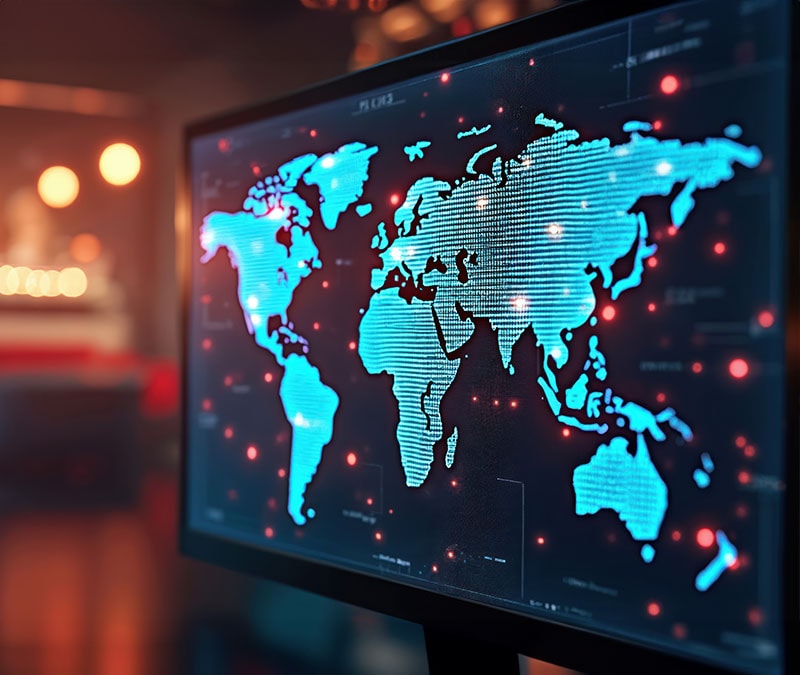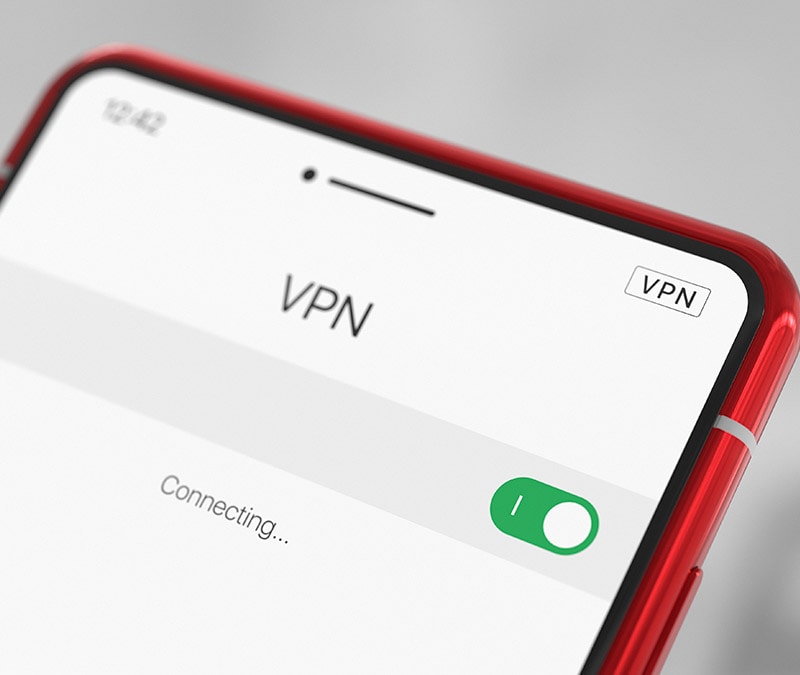Are free VPNs safe? 7 things to know before using free VPNs
You might be tempted to sign up for a free VPN service. But are free VPNs safe to use? Learn more.

A virtual private network — better known as a VPN — is a key way to help protect your privacy when online, especially when you’re logging on from a public space such as a hotel lobby, coffee shop, library, or airport.
When you sign up with a VPN provider, you first log onto that service before you connect to the internet. When you do this, government agencies, businesses, hackers or others don’t see your IP address when you’re searching the web.
VPN providers also encrypt your data, scrambling it so that snoops can’t see what sites you visit, files you download, games you play, or videos you stream. Discover how VPN for PC can provide enhanced encryption and privacy for your personal computer activities.
Online privacy, though, isn’t absolute, even with a VPN. That’s because your VPN provider will know your IP address and what sites you visit. The key, then, is to work with a VPN that you trust. You want a VPN that doesn’t track your data when you’re online. If your provider doesn’t log your keystrokes, it also won’t provide your information to other agencies or businesses.
Most VPN providers charge for their services. Others, though, don’t. You might be tempted to sign up for one of these free services. After all, who doesn’t like to save money?
But are free VPNs safe to use? Maybe not.
Not all VPNs are created equal
You sign up with a VPN to protect your online privacy. But a 2016 study of 283 Android VPN apps by The Commonwealth Scientific and Industrial Research Organisation (CSIRO) in Australia found that many VPNs don't offer the kind of security users need.
According to the report’s findings, 67% of the VPN apps studied in this analysis embedded at least one tracking library in their code to track users’ online activity. That's worrisome. If a VPN is tracking your activity, it may intend to sell that data to third parties, for purposes of marketing or ad-targeting.
The study also found that, for several reasons, 84 percent of the analyzed apps didn't properly encrypt the online data of users. This means that it could be easier for snoops to track what users are doing when browsing the Internet.
Free VPNs are more likely to track your data. The CSIRO study said 65 percent of paid VPN providers didn’t track users’ online activity, but only 28 percent of free services did the same.
Why? Free services need to make money somewhere. If they're not charging you to use their service, how else do they earn a profit to support the product they provide?
At the same time, paid VPNs are more likely to provide stronger encrypting services. That’s because they’re profiting from subscriptions. They’re more likely then, arguably, to spend the money necessary for stronger encryption methods.
7 things you should know about using a free VPN
If you’re considering a free VPN, it’s smart to be aware of issues that could be related to free offerings, including these.
1. The VPN provider could be infected with malware
According to the 2016 CSIRO study, of the 10 VPNs most likely to be infected with malware, six were free ones.
Most of the malware was related to advertising. That isn't surprising considering that free VPNs often rely on advertising to make money. VPNs that charge are less likely to need to rely on ads for their profits.
2. VPNs can use embedded tracking for various purposes
The CSIRO study found that only 28 percent of free VPN providers didn't use embedded third-party trackers for analytics, tracking, or advertising purposes.
According to the study, 10 percent of free services had one tracker, another 10 percent had two, and 25 percent relied on three. The study found that 8 percent had four trackers, while 18 percent of free VPNs had third-party trackers.
3. VPNs can often fail at unblocking content
Many consumers turn to VPNs as way to access online content that they may be unable to access in certain regions of the world. A prime example? Netflix content.
If you live in the United States, for instance, you might not be able to access the same Netflix movies or TV series that you could get on Netflix in the United Kingdom. If you first log onto the Internet through a VPN provider with an IP address based in the United Kingdom, you might be able to access that blocked Netflix programming.
The problem? Free VPNs often can’t unblock Netflix content. You may want to consider the more formidable resources of a premium service that may allow you to access such content. Keep in mind, it’s important to consider regional laws and the terms of your service agreement with the content provider.
4. VPNs might slow down your connection
You might find that your online connection is sluggish when you log onto the internet through a free VPN service.
Many free services also offer premium VPN protection which charge either a monthly or annual subscription fee. These providers might slow down your online speeds on purpose as a way to encourage users to sign up for their paid versions.
5. VPNs may allow delivery of online ads
Free VPN providers need to make money, and many do this by hitting users with a steady stream of pop-up ads. This is not only annoying but can also slow down your connection speed.
Some free VPN providers rely on ad-serving trackers, which track your online activity. HotSpot Shield VPN was an example: In 2017, the Federal Trade Commission filed a complaint against the company, charging it with several privacy violations related to its online ads.
According to the complaint, HotSpot Shield VPN used five tracking libraries and sold user data to third-party advertising networks. HotSpot’s parent company denied the allegations and has since offered annual transparency reports.
6. VPNs might hijack your browser
Some free VPNs can highjack your browser and redirect you to other sites without your permission. According to the CSIRO study, HotSpot Shield did this to its users, for example, redirecting them to alibaba.com and ebay.com.
7. VPNs may allow governments to collect user data
A 2019 study from VPNpro found that the top 97 VPNs are operated by a total of 23 parent companies, with many of these companies in countries with weak privacy laws.
What's alarming about these finding is that China has strict VPN bans. These companies, then, might be approved by the government in which the parent company is based to collect the data of its users.
The key takeaway? It’s probably a good idea to invest in a paid VPN service. These services may do more to help protect your data, avoid slowing down your internet connection speed, and unblock restricted content.
Related VPN Articles
- What is a VPN?
- How does a VPN work?
- How secure is a VPN? What makes a safe VPN?
- 10 benefits of VPN you might not know about
- Are free VPNs safe? 7 things to know before using free VPNs
- What is a no-log VPN?
- How to protect your online privacy with a VPN
- Setting up a VPN on your router
- Are VPNs legal or illegal?
- VPN leaks: What they are and how to test your VPN security
- VPN tunnel: What is it and how does it work?
- Proxy vs. VPN: 4 differences you should know
- How to delete your search history and maintain privacy with a virtual private network (VPN)
- VPN for iPhones
- VPN for Android
- VPN For Windows
- VPN for Mac
Editorial note: Our articles provide educational information for you. Our offerings may not cover or protect against every type of crime, fraud, or threat we write about. Our goal is to increase awareness about Cyber Safety. Please review complete Terms during enrollment or setup. Remember that no one can prevent all identity theft or cybercrime, and that LifeLock does not monitor all transactions at all businesses. The Norton and LifeLock brands are part of Gen Digital Inc.





Want more?
Follow us for all the latest news, tips, and updates.